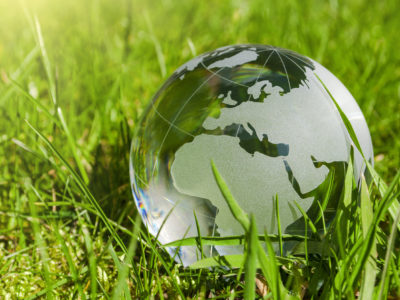OPALCO’s Battery Storage Project was funded in part by a $1 million Grid Modernization grant from Commerce’s Clean Energy Fund (CEF). The microgrid OPALCO built on Decatur Island includes a battery storage project paired with a Community Solar Array. The battery storage project is a one-megawatt, 2.6 MWh large-scale battery that can operate independently from the grid and power approximately 500 homes for up to 4 hours. The goals of…
Funded in part by a $3 million grant from the Washington State Clean Energy Fund, Energy Northwest has powered up its Horn Rapids Solar, Storage & Training Project in Richland. This project provides Washington state its first opportunity to integrate a utility-scale solar and storage facility. The facility combines solar generation with battery storage and technician training. The 20-acre project provides 4 megawatts of direct-current electricity — enough energy to…
Washington State has volunteered to be the pilot state for the Outage Data Initiative Nationwide (ODIN) program, an initiative led by the US Department of Energy (DOE) and Oak Ridge National Laboratory (ORNL). Currently, during power outage incidents, outage data from utilities is fragmented and poorly standardized. Many utilities choose to display outage information on their websites, while others only post updates to social media, and some do not share information…
Washington State University has released the Weatherization Workforce Roadmap for Washington state. The report describes the key workforce challenges facing Washington’s low-income weatherization program agency employers and subcontractors. The roadmap also offers potential solutions and actions that can enhance the availability, preparation and ongoing development of a skilled weatherization workforce in Washington state. Recent research shows that demand for energy efficiency-related employment, including weatherization, has greatly exceeded the availability of…
The Clean Energy Transformation Act (CETA) (SB 5116) was implemented in May 2019. It commits Washington to an electricity supply free of greenhouse gas emissions by 2045. CETA Rulemaking Commerce has submitted a Preproposal Statement of Inquiry (CR-101) to solicit public comments on CETA rulemaking. Rulemaking Workshop on August 22 Agenda, Webinar Option and Parking Information (pdf) Please RSVP: https://www.surveymonkey.com/r/RSVP0822 Two previous stakeholder workshops were hosted on July 30 and Aug. 1 to…
Appliance efficiency standards represent a cost-effective strategy to protect consumers and businesses, strengthening the state’s clean energy economy. Efficiency products save energy and water, reduce long-term operating costs and cut greenhouse gas emissions. Seventeen new products have been added to state standards. Rules Development Commerce has submitted a Preproposal Statement of Inquiry (CR-101) to solicit public comment on the appliance standards rulemaking before they begin a formal process. The existing rules, WAC 194-24,…
Fuel Mix Disclosure reporting has begun. The objective of the fuel mix disclosure process is to inform customers and policy makers about the characteristics of the electricity delivered by each utility to consumers and businesses. Most utilities use electricity from multiple sources, even if they operate their own power plants. In some cases, they obtain power without knowing the specific generation source. Utilities are providing the following information in megawatt-hours…
On May 7, 2019, Governor Inslee signed into law House Bill 1257, commonly referred to as the Clean Buildings bill. The objective of this legislation is to lower costs and pollution from fossil fuel consumption in the state’s existing building stock, especially large commercial buildings. The law requires that Commerce develop and implement an energy performance standard for these buildings and provide incentives to encourage efficiency improvements. Commerce will use…
The following programs are currently in the contract negotiation stage with awardees: Grid Modernization program Research, Development and Demonstration (RD&D) Energy Efficiency & Solar (EE&S) Grant funding received in the budget includes: Grants to Non-Profit Lenders Grid Modernization Grants RD&D Grants Shore Power Electrification Dairy Digester Advanced Nutrient Recovery Washington Maritime Innovation Center Offshore Ocean Wave Demonstration Shore Power Electrification The Electrification of Transportation Systems program will soon be issuing…
The GHG Emissions Reduction Program is a grant program supported through Commerce’s Clean Energy Fund (CEF3) OLYMPIA, WA – The Washington State Department of Commerce is seeking proposals for the new Greenhouse Gas (GHG) Emissions Reduction Program. The Washington State Legislature created the GHG Reduction grant program to reduce greenhouse gas emissions and protect or create aluminum manufacturing jobs in Whatcom County. GHG program-funded projects must provide a public benefit…

